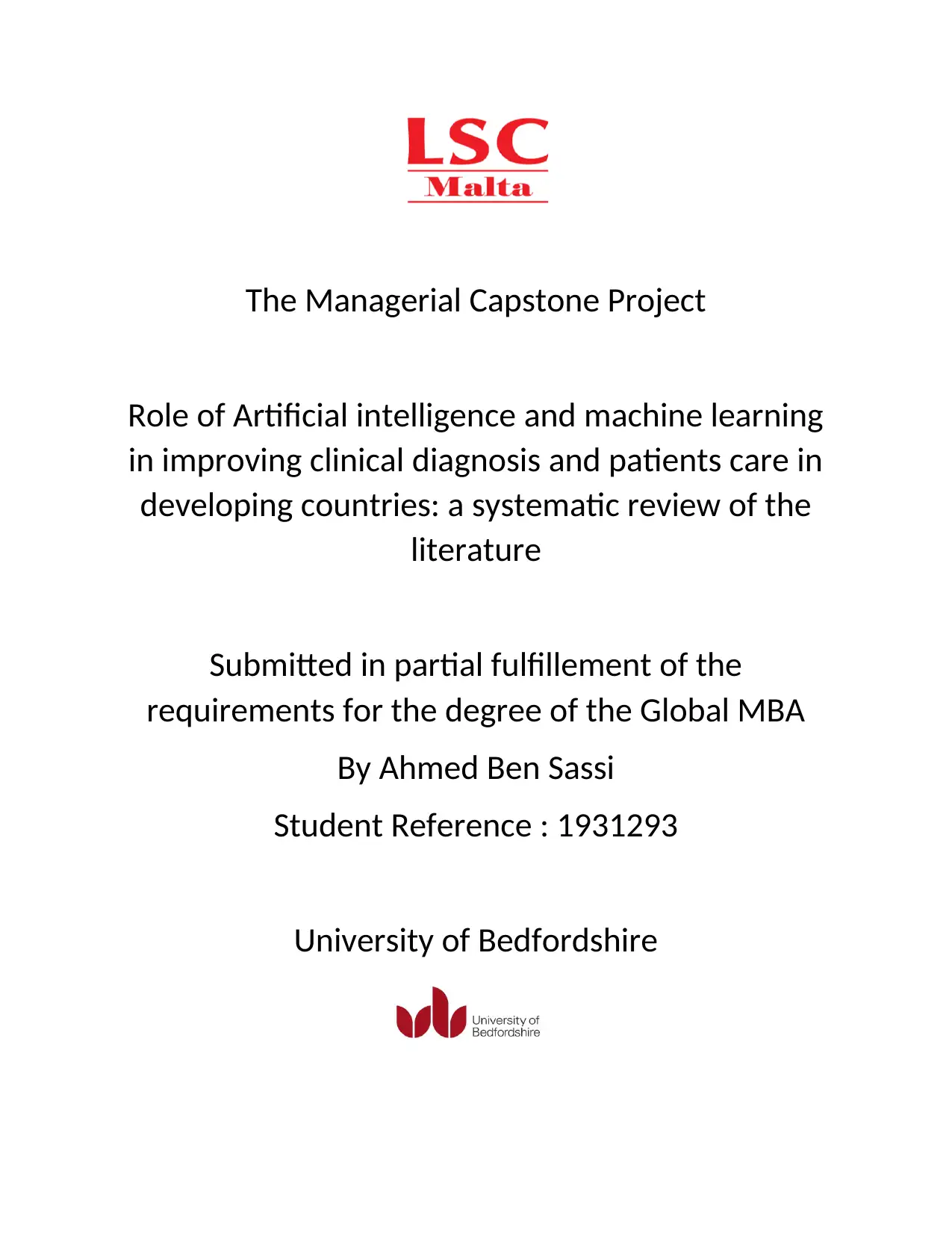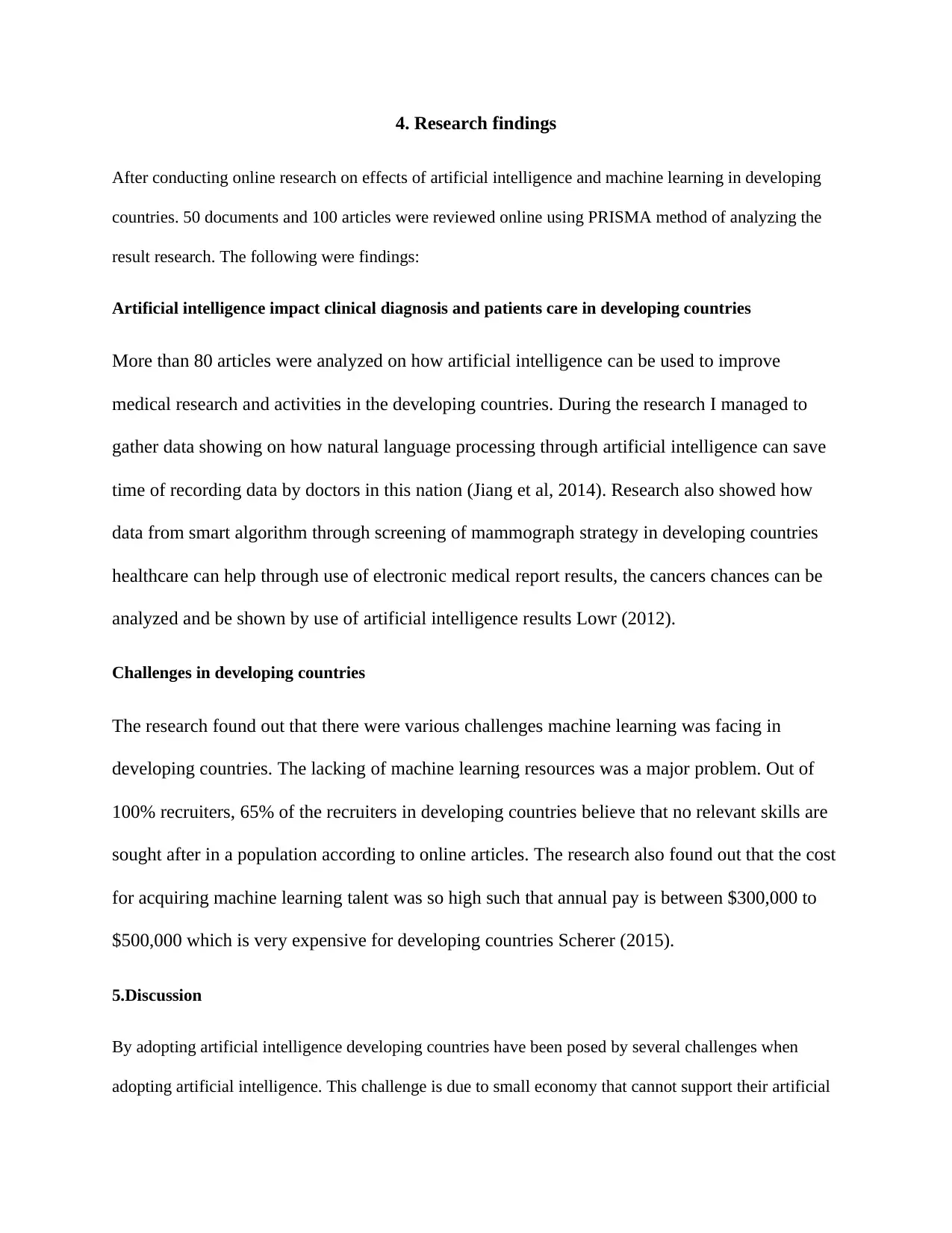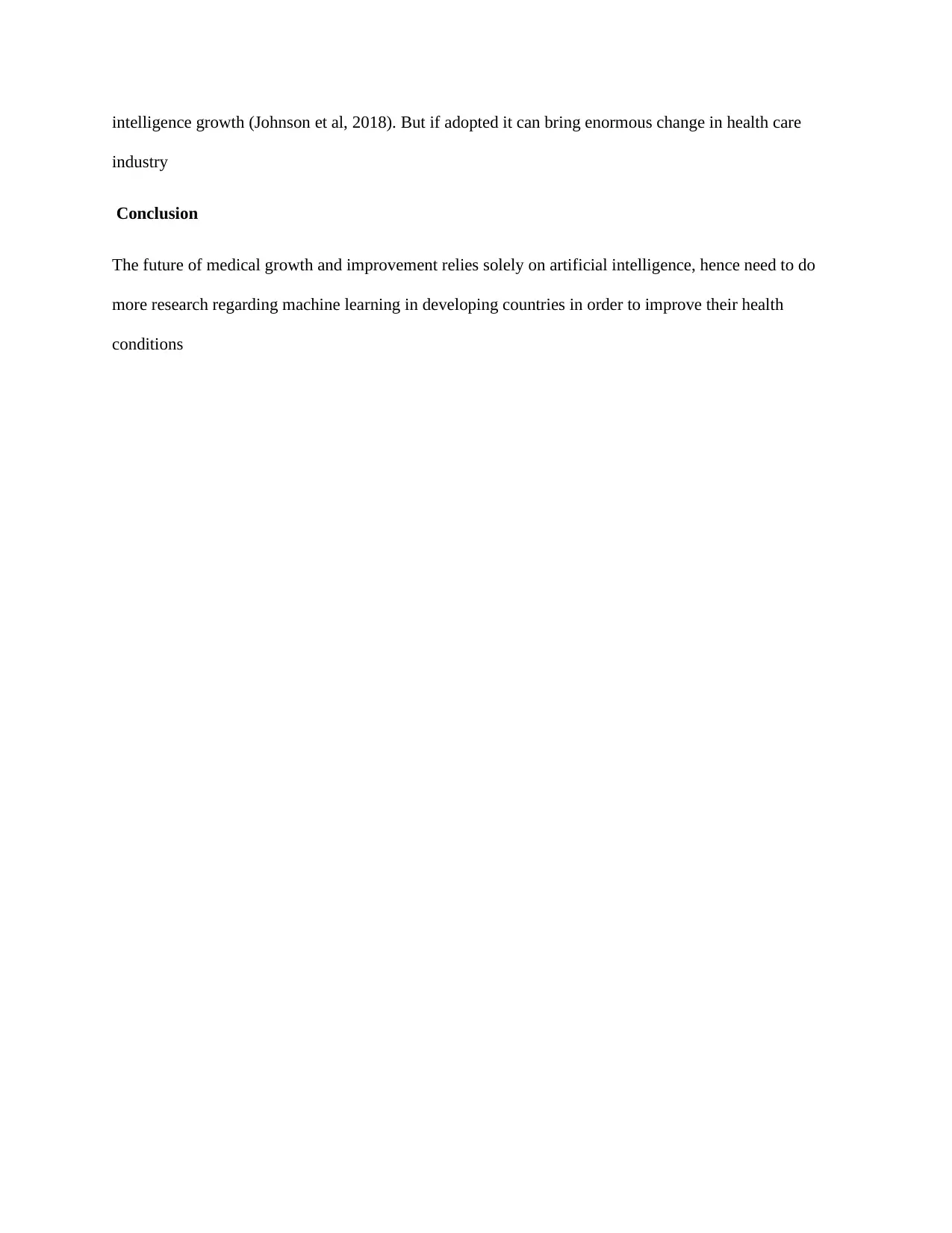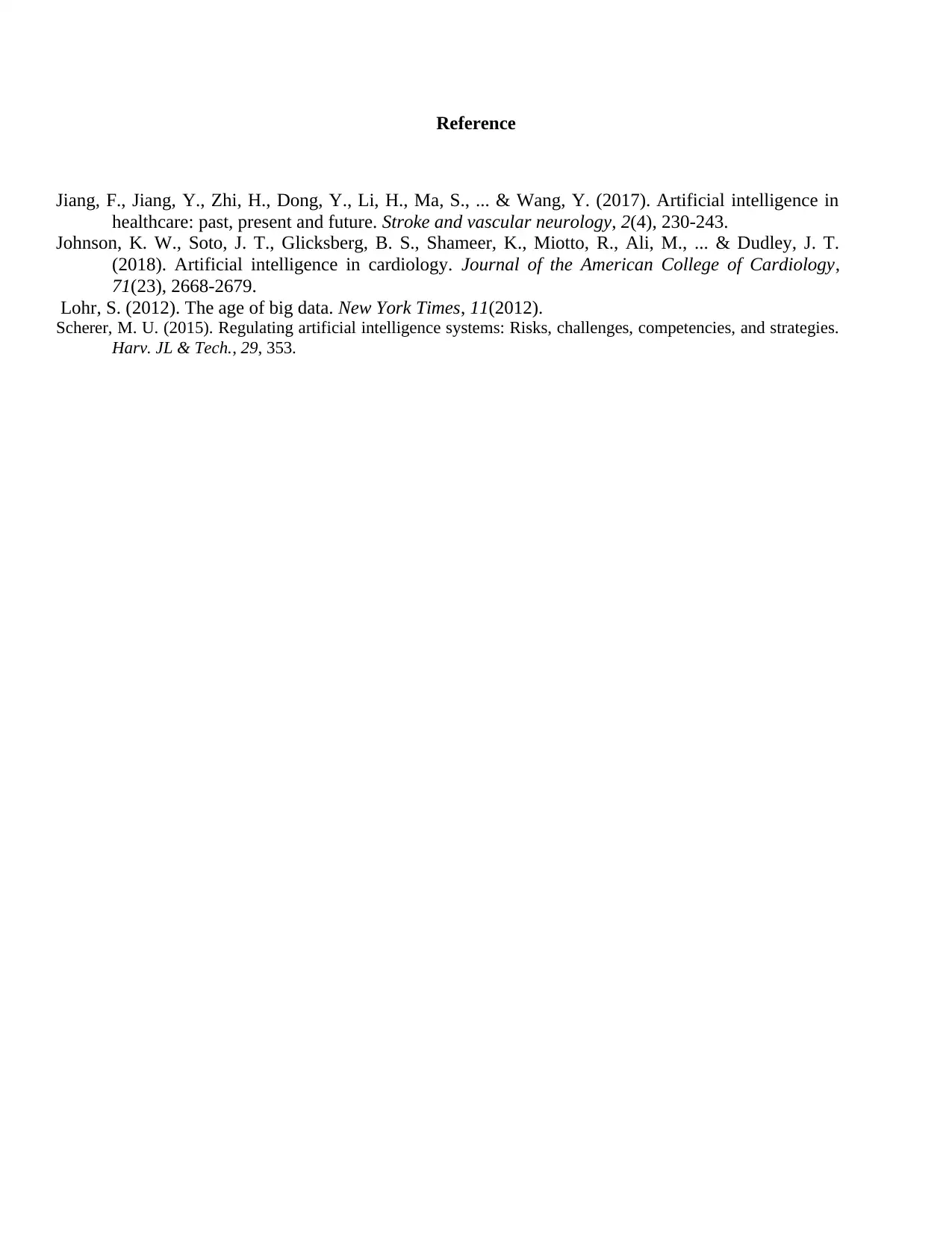Managerial Capstone: AI/ML in Developing Country Healthcare
VerifiedAdded on 2022/08/18
|4
|570
|19
Project
AI Summary
This Managerial Capstone Project, submitted for a Global MBA at the University of Bedfordshire, presents a systematic review of the literature on the role of Artificial Intelligence (AI) and Machine Learning (ML) in improving clinical diagnosis and patient care in developing countries. The research, based on the PRISMA methodology, analyzes 50 documents and 100 articles. Findings indicate AI's potential to enhance medical research and data recording, and support early cancer detection. However, the study also highlights challenges such as limited resources and high costs associated with ML talent acquisition in these regions. The project concludes that while AI offers significant promise for healthcare advancements, further research is crucial to address the specific needs and limitations of developing countries, ultimately improving their healthcare conditions. The project also includes references to various research papers.
1 out of 4











![[object Object]](/_next/static/media/star-bottom.7253800d.svg)